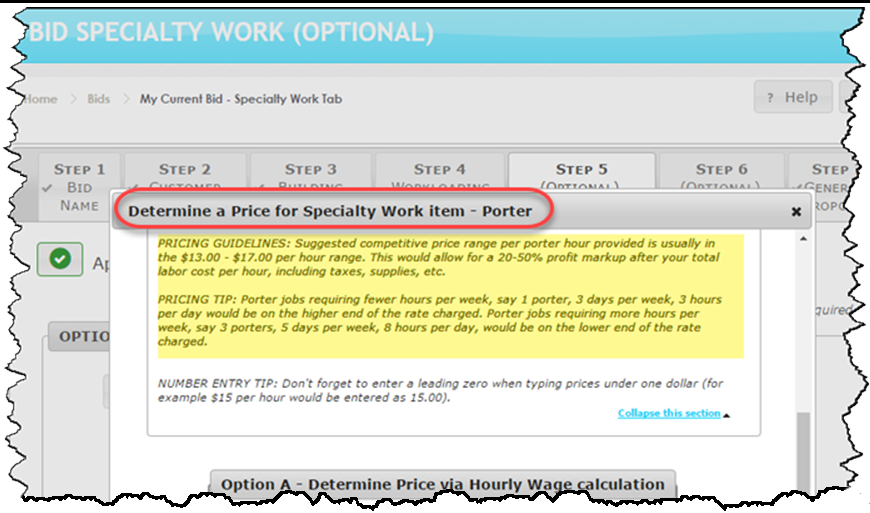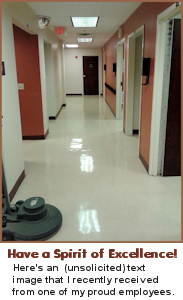Ask Drake
Grand Master Janitor, 30+ years
With the truly, humbling success of CleanlyRun (formerly CleanGuidePro), we’ve received a lot of questions (from companies all over the world) about a variety of topics in the janitorial industry. Today I’d like to share one about Day Porter pricing.
Question: “What’s the average hourly rate for a Day Porter nationwide?”
Keep it local: All wages should be viewed at the local (versus national) level. For example, a Day Porter in California or New York City isn’t going to be paid at the same rate as one in Georgia…
Day Porters earn more: Day Porter work is considered to be Specialty Work (which is addressed in Bid Creation Step 5 of our CleanlyRun Janitorial Bidware system). As a result, a Day Porter is paid at least 10% – 20% more per hour than a standard janitorial cleaner. In addition, your profit markup (to your client) will be higher for this type of work, depending on the weekly usage of the Porter(s).
Here’s a Pricing Tip from the (Bid Creation Step 5) Specialty Work Screen for Porter work:

An excerpt from this (pop-up) Pricing Tip reads:
PRICING GUIDELINES: Suggested competitive price range per porter hour provided is usually in the $17.00 – $23.00 per hour range. As a general rule, you’ll want to plan for a 25-50% profit markup after your total labor cost per hour, including taxes, supplies, etc.
PRICING TIP: Porter jobs requiring fewer hours per week, say 1 porter, 3 days per week, 3 hours per day would be on the higher end of the rate charged. Porter jobs requiring more hours per week, say 3 porters, 5 days per week, 8 hours per day, would be on the lower end of the rate charged.
Hope this helps!
Want more Janitorial pricing tips and help? If you’re looking for a proven competitive edge in Janitorial Pricing, I encourage you to try a free 30 day trial of CleanlyRun Janitorial Bidware.
Check us out at CleanlyRun.com… And then let’s grow your business!









 To acquire new customers, you spend a lot of time, effort and money to market and sell your services. Once you get a new customer, that’s just the beginning; Now you have to keep them!
To acquire new customers, you spend a lot of time, effort and money to market and sell your services. Once you get a new customer, that’s just the beginning; Now you have to keep them!